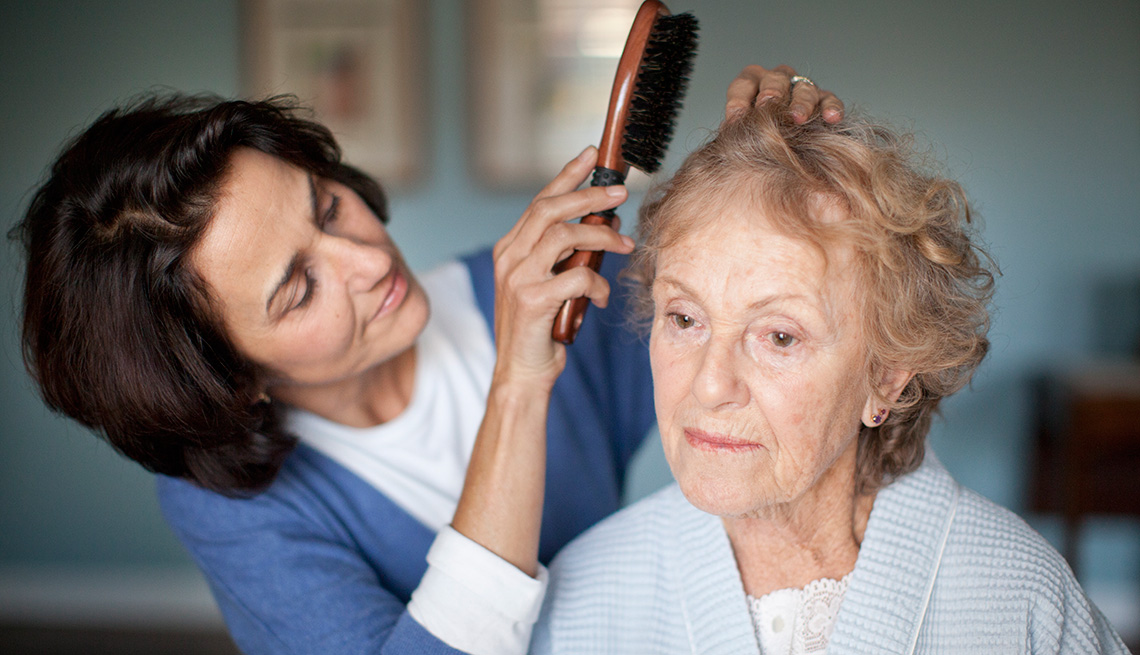Staying Fit
Her friends often wonder how Emma gets it all done. The 56-year-old wife and mother is in her sixth year of caring for her mother, who has dementia, in her home, while also attending to the needs of her husband and adult children. Yet, even as her mother's symptoms have gotten worse, she seems to have thrived, deftly handling her roles. Rather than grinding her down, the prolonged caregiving somehow may be building her up.
Emma's fortitude seems counterintuitive. It has often been said that family caregivers are like marathon runners who run a long, tough race for months and years. If that metaphor is accurate, then it would suggest that the longer they run, the more wear and tear they suffer and the more likely they'll become exhausted and drop out.


AARP Membership— $12 for your first year when you sign up for Automatic Renewal
Get instant access to members-only products and hundreds of discounts, a free second membership, and a subscription to AARP the Magazine.
But studies over the past decade by noted caregiving researchers — such as David Roth of Johns Hopkins University, William Haley of the University of South Florida and Joseph Gaugler of the University of Minnesota — suggest that caregivers run a different race than your typical marathon. To be sure, there are some caregivers who, because of conflicted emotions or overwhelming circumstances, quit the course early, placing their loved ones in nursing homes. But the research finds that the caregivers who hang in there and keep running for extended durations often become stronger and more resilient over time.
We might say that caregivers such as Emma hit their stride, find a groove or even discover the runner's high. Is there a secret power drink or exercise gear propelling them onward? What is the breeze at their back that's bolstering momentum? Here are some ideas drawn from research and clinical lore to incorporate into your caregiving routine.
Learn the terrain
Not all the diseases and conditions with which care recipients struggle pose the same challenges. Caregivers of loved ones with dementia, a gradually progressive disease, can expect a long, slow slog. Those caring for cancer survivors have to become accustomed to intense periods of caregiving during recurrences and active treatment, followed by periods of relative quiescence. To best prepare for running their particular course, caregivers need to know the trajectory of the illness affecting their family member. They also need to know the pertinent medical treatments and support services, as well as how to partner with health care and social service teams. Primary care physicians can help with information about particular conditions. The websites of disease-specific organizations (for example, Alzheimer's Association, American Cancer Society) also provide tips for family caregivers about how to advocate for care recipients.

































































